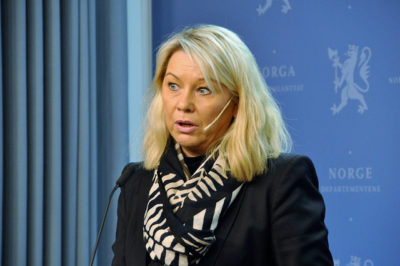More Norwegians are increasingly engaged in political issues but don’t feel their top politicians are listening to them. New figures show that public confidence in Members of Parliament and the government has sharply declined, after what some call “too many scandals” and an influx of too many professional “advisers” and paid consultants who seem to have more influence than the voters.

Norway’s state directorate for public administration and information technology (Difi) has just released its fifth survey since 2010 that monitors Norwegians’ attitudes towards public services, institutions and not least the politicians in charge of them. It indicates that the majority are satisfied with their lives in Norway, and think the quality of public services is good. They’re less satisfied with their own encounters with the public sector, and more Norwegians have become politically active.
The survey’s results show that the number of Norwegians who have tried to influence political issues in Parliament, beyond simply voting in elections, rose 75 percent between 2013 and 2019. The number of Norwegians actually contacting a Member of Parliament about an issue that concerns them has doubled.
At the same time, however, the number of Norwegians who believe their politicians are working for Norwegians’ best interests has fallen by nearly 18 percent. In 2013, 56 out of 100 Norwegians questioned had confidence that their politicians were working for the best interests of everyone. In 2019, only 46 out of 100 believed the same.
The figures also fell regarding how many Norwegians think their politicians listened to their views, from 52 percent to just 42 percent.
Politics too ‘professional’
That probably comes as no surprise to political commentators like Jo Moen Bredeveien in newspaper Dagsavisen. He and others have decried how Norway’s political grassroots organizations are being gradually replaced by professional lobbyists and political advisers who now have the ear of politicians. Bredeveien blasted the Labour Party’s deputy leader Hadia Tajik on Wednesday for hiring a new political adviser from the expensive consulting and public relations firm First House. The new adviser is the lastest in a long line of people moving back and forth between political parties and high-priced professional PR firms.
“It’s hard to find a clearer signal that we have developed a political class that’s not part of the rest of society,” Bredeveien wrote. He noted that Tajik’s new adviser from First House replaces her previous adviser who’s taken a job at the national employers’ association NHO, generally viewed as the labour movement’s main opponent. Bredeveien accused Labour of damaging the party’s credibility with personnel who are turning Norwegian political players “into something quite different from those down here in the masses.”

Monica Mæland, the government minister for the Conservative Party who’s in charge of local governments and modernization, told state broadcaster NRK that she was saddened by the new survey’s results. “This is a paradox,” Mæland said. “It’s great that we’re seeing increased interest (in politics) and that we had higher voter turnout this year (at the municipal elections in September). But it’s of course a challenge that folks don’t think we listen when they speak.”
Mæland also conceded that the government and not least herself has had to “make tough and unpopular decisions,” like forcing through mergers of counties and municipalities that are aimed at providing better economy of scale. “Consolidation and centralization” have been the buzzwords for political movements that many don’t like.
She defended the “unpopular decisions” once again: “We have to be clear about how both the Parliament and municipal governments have to make difficult decisions. We can’t operate based on popularity polls, but we can’t loose confidence either.”
Dag Terje Andersen, a Labour Party veteran and former president of the Parliament, cited several possible reasons for the declining public confidence in politicians: a string of scandals involving individual MPs in the past few years, conflicts among the four parties making up the conservative government coalition, new and massive participation by Norwegian youth in the climate debate that leads to heated debate over the oil industry, and grassroots campaigns like the bunad guerrillas who believe outlying areas are overlooked by national politicians in Oslo.
“Folks are engaging themselves, but their confidence declines,” Andersen told NRK. “It’s our job to do something about that.”
newsinenglish.no/Nina Berglund

